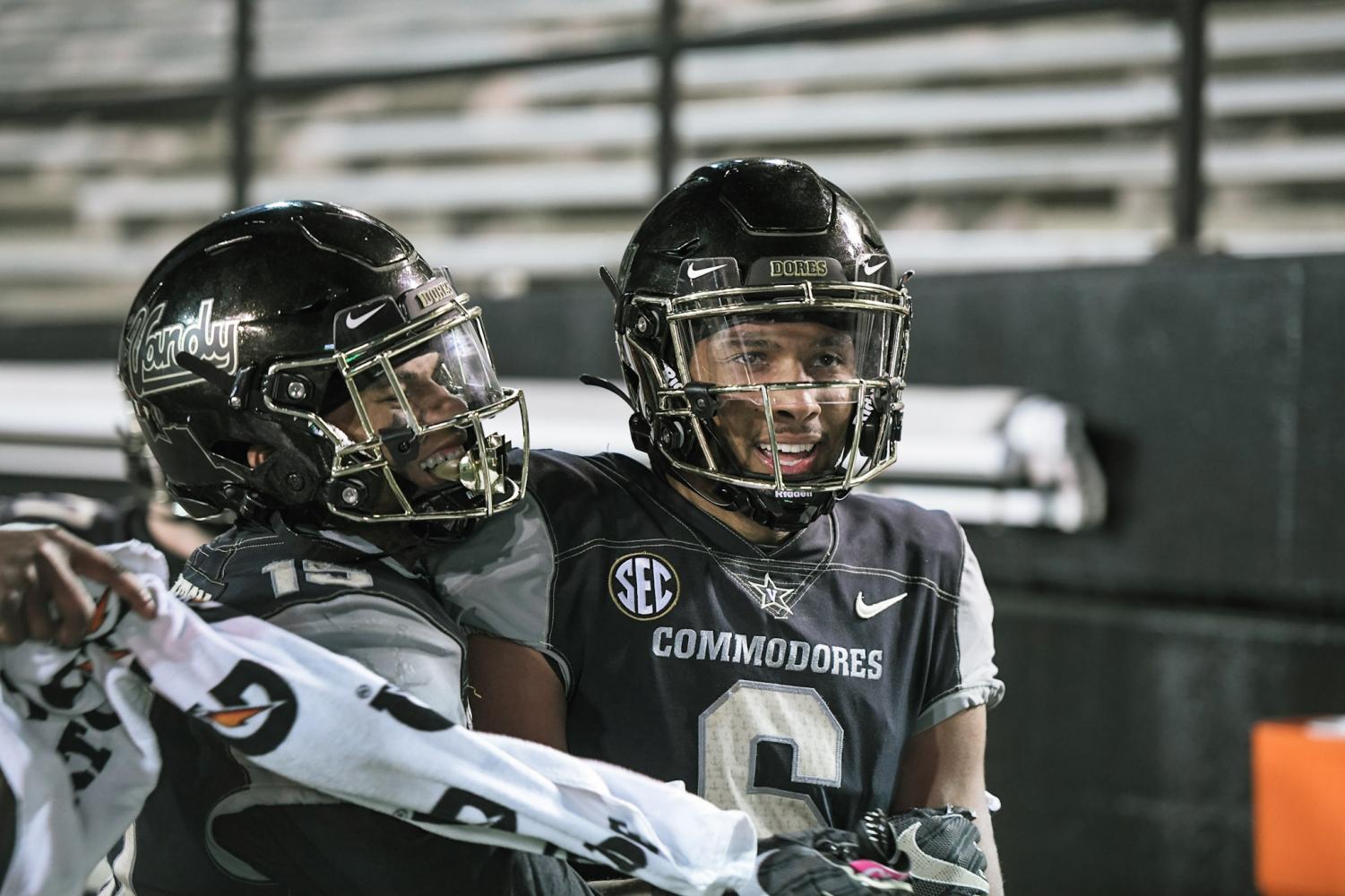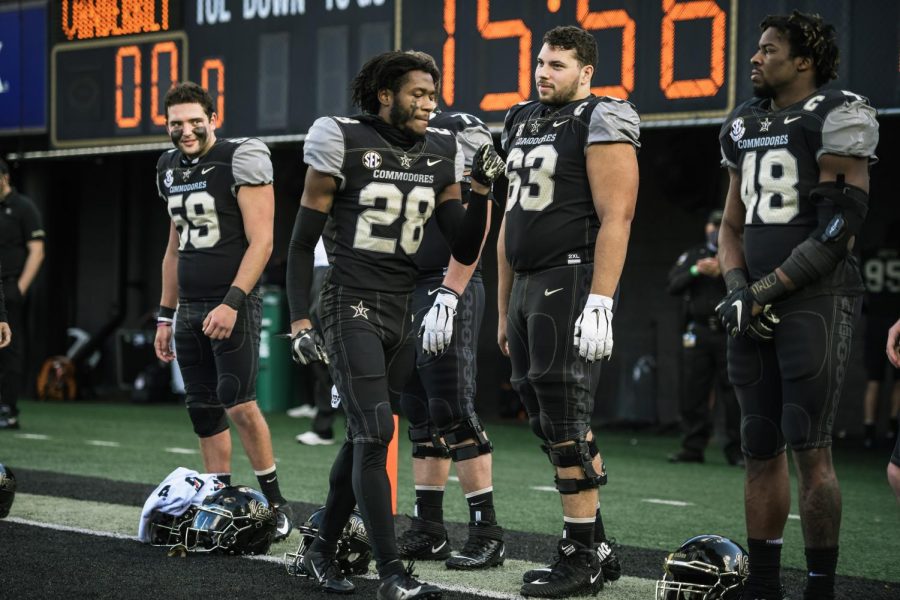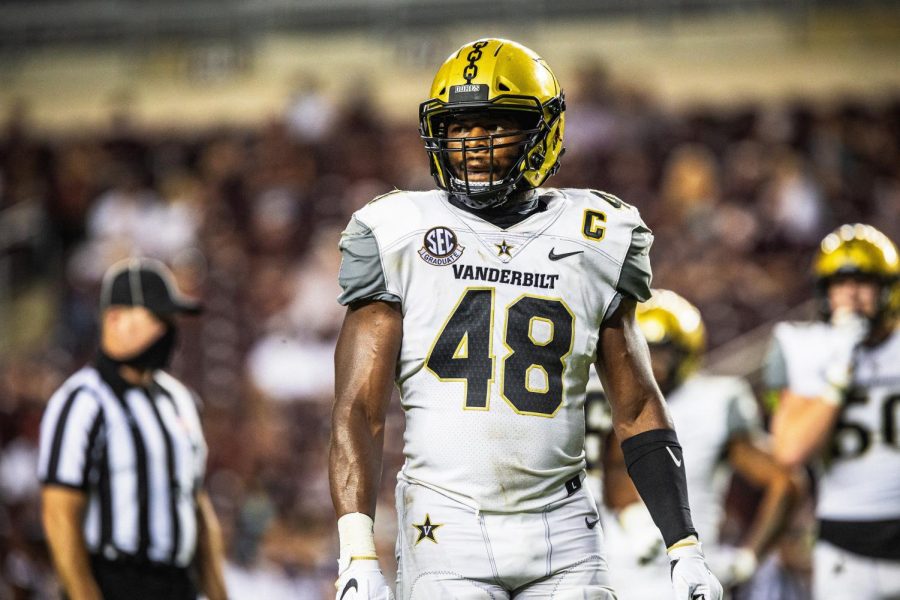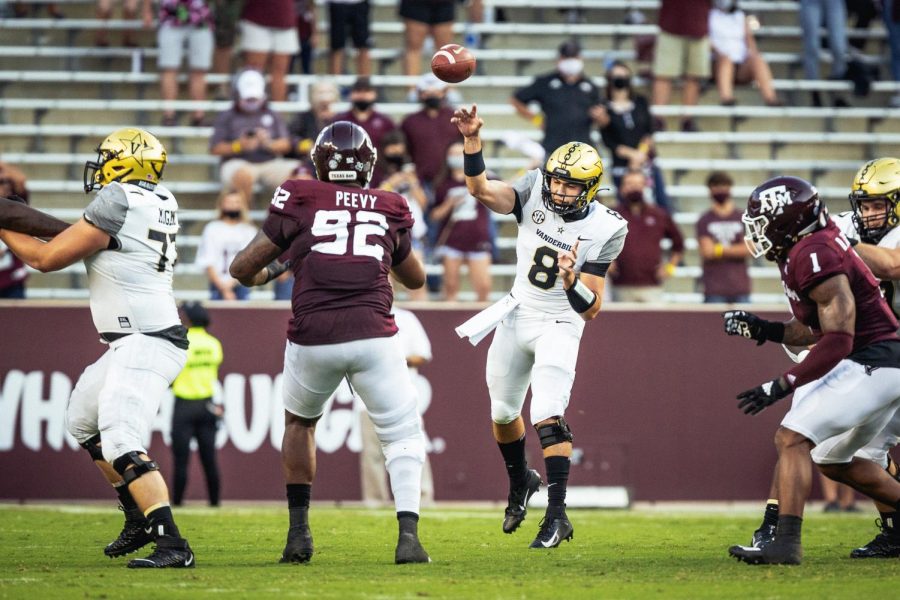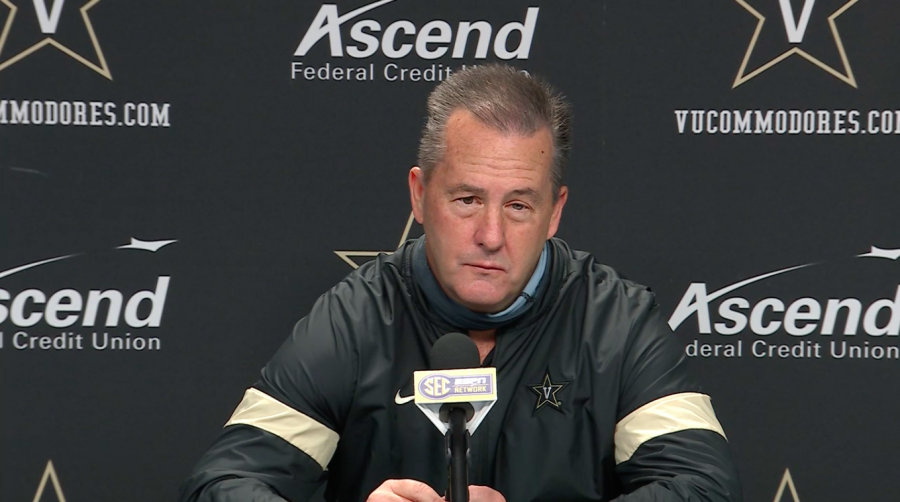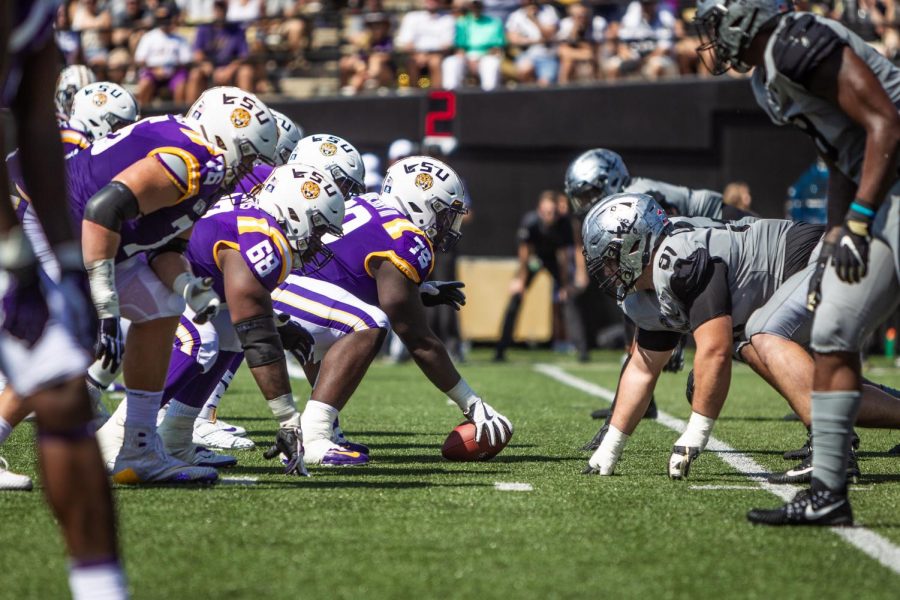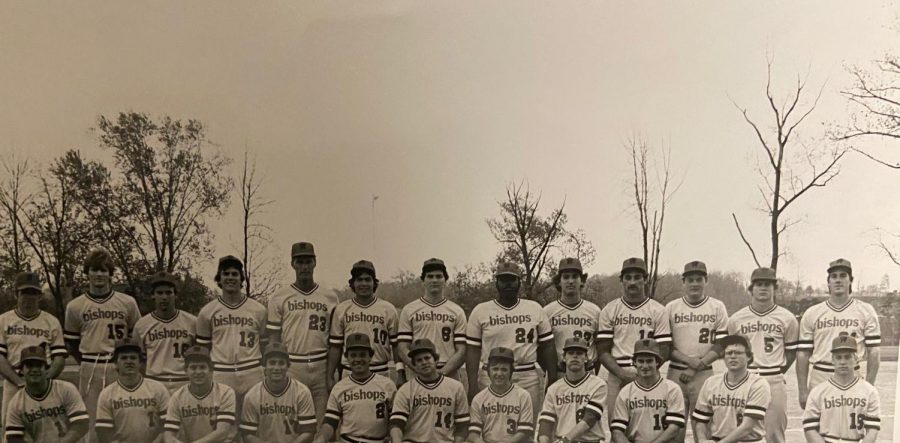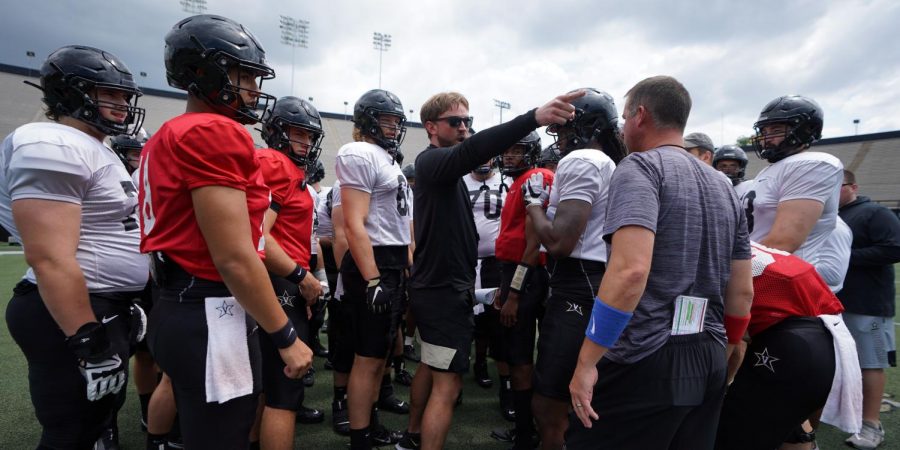There are a lot of ways I can spin this game.
I can spin it as the 42-17 loss it was, a game in which Vanderbilt, after leading 10-7 early, was exposed, embarrassed and obliterated on both sides of the ball. Its defense had substantial gaps in the depth chart and looked the part of a worn-down unit. Its offense, led by an inexperienced line, was stagnant. And from the moment that the game’s momentum swung in Tennessee’s direction, we all knew it was over.
Vanderbilt fell to 0-9, with a chance to go 0-10—winless for the first time in program history—next weekend against Georgia. But the worst part? Vanderbilt looked like a team that literally can’t go 0-10, because it looked like a team that won’t make it another game. After playing Saturday with just 49 active scholarship players, four below the Southeastern Conference (SEC) threshold, I’m hard-pressed to think that the Commodores have reason to travel to Athens next week.
But that’s not how I’ll spin it. I’ll leave the critique for my final Commodore Brunch column, which, whether or not they play, will absolutely, without a doubt still be published. Because someone has to talk about what transpired over the course of this season.
Back to what I was saying—despite the outcome of the game, I see only one way to spin it: these kids have some heart.
Derek Mason spent seven years at the helm of this program. All he asked of his student-athletes is that they’re relentless, tough and intelligent. It was his motto. While they may not be the four-to-five-star recruits that other SEC schools routinely reel in, all he asked was that they play with grit. A chip on their shoulders, per se. He wanted his “Vanderbilt Men” to show the mental toughness that few other teams in this conference can boast. Heck, the acronym, “RTI,” is literally printed all over the walls in Vanderbilt’s practice facilities.
Mason, ultimately, was fired. His model of mental toughness simply didn’t translate to wins. Yet in his departure, Mason left behind only his prototype student-athlete. If there’s anything about his on-field, coaching persona for which he should be remembered, it’s precisely that.
He left behind 49 scholarship players, plus a few walk-ons, that didn’t have to play on Saturday. They were 0-8. They had very little, if anything, to play for. They could have declared their rivalry game a no-contest; they could have gone home for winter break. They could have looked to their left, looked to their right, seen fewer than 53 scholarship players and quit.
But they didn’t.
This team was taught not to quit. And they sure as hell weren’t going to forfeit to them.
Even when they only have 49 scholarship players, even when they’re playing 11-on-18, counting the seven referees who may as well have been dressed in orange, they were trained to keep fighting. On Saturday, they did just that.
“I thought the guys were competing as hard as they could out there,” interim head coach Todd Fitch said after the loss. “We were short on numbers out there. We had about 49 scholarship players.”
Fitch even went so far to acknowledge that there are no moral victories in what was a 25-point loss, a game that was close for about a quarter. And he’s right.
You just have to give those 49-plus student-athletes all the credit in the world, though. They fought until the end, and they played against their in-state rivals even when they didn’t have to. Better yet, they played and lost to their in-state rivals, when it could’ve been declared a no-contest.
Whoever inherits this program, know this: the cupboard is not empty. There are some talented players to work with, sure. Better yet, there are some tough kids who will give you their all. You may only have a shell of a team, but you have a shell of a team that’s gone through the wringer, been sent through a gauntlet of a schedule, lost their head coach, half their team and every game this season.
And damnit, they’re still standing. They’re still fighting.
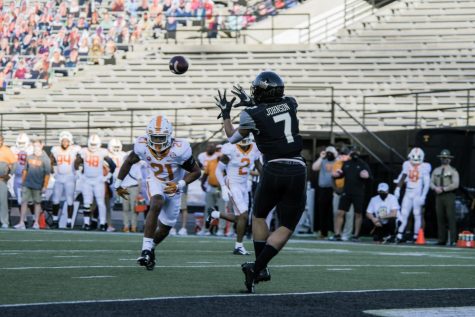
Referees spoil the meal
We all have that one friend.
You know, when you go to brunch, or any meal for that matter, and that one person just ruins it for everyone. They do something inexplicable. They put pineapple on their pizza, or they eat potato chips with ketchup. They spoil the meal.
Well, on Saturday—and please stop me if you’ve heard this one before—the SEC referees played that guy. They ruined it.
Back on their bullshit as early as the second quarter, the referees had a clear-cut opportunity to do the right thing. And yet, just as they did when senior offensive lineman Grant Miller lightly pushed a Kentucky defensive lineman a few weeks ago, only to receive a rebuttal that almost took him off his feet, the refs blew it.
They gave Miller the lone penalty on the play, as if the Kentucky Wildcat didn’t a) start the fight in the first place by pushing quarterback Ken Seals well after he’d thrown the ball and b) push Miller even harder. On Saturday, though, there was one key difference in the blown call.
It changed the momentum of the game. It gave the Volunteers the lead, and they never once looked back.
Early in the second quarter, Vanderbilt led 10-7 and were looking to move the ball out of the danger zone. Lining up on their own 16-yard line, Seals dropped back in the pocket and rolled out just a tad to relieve himself from the incoming Tennessee linemen. Looking for wide receiver Cam Johnson, Seals instead threw the ball into the outstretched arm of a Volunteer, leading to a highlight-reel, one-handed pick-six to give Tennessee the lead.
Upon first glance, it was just a great play by Bryce Thompson.
But the replay showed a much different story. The replay showed Thompson grabbing Johnson’s jersey, stopping him in his tracks and preventing him from making a play on the ball.
“I thought it was a little bit of a momentum swing,” Fitch said, when asked of the play.
Damn right it was. It swung ESPN’s win probability chart from 67.7% in favor of Tennessee to 92.7%. It gave the Vols a lead they ended up hanging onto until the game’s conclusion. And it was just the tip of the iceberg, as Seals proceeded to take a few late hits that should’ve been ruled nothing other than cheap shots.
It’s tough to go out there as shorthanded as Vanderbilt did. It’s even tougher to do it when the refs are calling a one-sided game.
Finish what’s on your plate
The Commodores never once backed down. As I mentioned, they were short-handed—but the degree to which they were disadvantaged was almost hard to believe.
“Our depth on defense was really, really short,” Fitch said.
My goodness, short doesn’t do it justice. Vanderbilt’s depth chart was cadaverous.
At defensive end, they had redshirt freshman Nate Clifton, who made his collegiate debut just months ago in Week One against Texas A&M. Clifton played alongside no one. Seriously, he was the only defensive end on the depth chart.
And he logged his first-career sack, burying Tennessee ten yards behind the line of scrimmage.
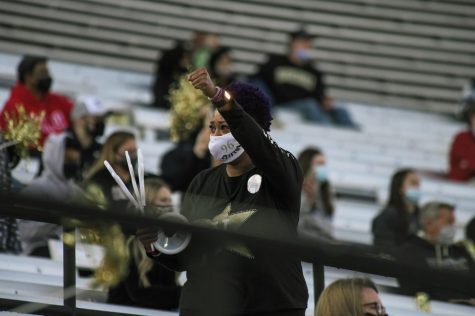
At outside linebacker, they had fifth-year senior and vocal leader Andre Mintze—who has been a steady force in the Commodore defense all season—alongside an out-of-position linebacker in 185-pound cornerback Jaylen Mahoney.
Mintze did what he’s done all year. Early in the second quarter, while Vanderbilt was still clinging onto a 10-7 lead, he sacked quarterback Harrison Bailey for a six-yard loss, forced a fumble and gave Vanderbilt possession of the ball—all while Tennessee was just eight yards away from the paydirt. A critical redzone stop coming from the anchor of the defense, who, for some inexplicable reason, has not yet picked up a Senior Bowl invite despite playing some excellent football in what is likely his final season (technically, the fifth-year senior can still come back next season, since all fall student-athletes were granted an extra year of eligibility due to COVID-19), was somehow overshadowed.
Because Mahoney, the defensive back, filled in with ease, flew around the field like Ray Lewis and made plays that no out-of-position linebacker should ever make.
You just can’t make this stuff up.
Sophomore cornerback Gabe Jeudy-Lally, starting for just the second time in his career, was thrust knee-deep into the rotation due to secondary deficiencies like Max Worship’s absence, Mahoney’s position change and more. Jeudy-Lalley had notched ten total tackles in his career entering the game.
In the fourth quarter, when any sane person would see the game is practically over, Jeudy-Lalley saw it differently. Playing his heart out until the final whistle, he logged his first career interception and returned it for 30 yards.
Sophomore inside linebacker Anfernee Orji, who had yet to log a sack in his career, nor rack up more than five solo stops in a game, did that and more—he finished the day with a sack and 11 solo tackles, 13 total, in a career-best performance.
This season, I’ve spent week after week chronicling loss after loss for the Commodores. I write these columns just about every week, and I really don’t think any has had a positive underlying tone since Vanderbilt’s narrow, Week One loss to Texas A&M. And frankly, with Vanderbilt being outscored 319-121 since that first loss, I think it’s been very well-deserved.
Saturday was just different.
Look at what the kids have been through. From the losses to the firing to the opt-outs, transfers, injuries, COVID-19 related quarantines and more, it’s been a disaster. It’s been about as Vanderbilt of a Vanderbilt football season as anyone has ever seen.
They’re still giving it their all. No moral victories, sure. But that was a gutsy, meaningful performance against the Volunteers.
More history in the making
Sarah Fuller, for the rest of time, will be the first woman to log a snap in a Power Five football game, as she made her debut on Nov. 28 against Missouri—just six days after she helped Vanderbilt soccer win its first SEC Tournament title since 1994—with a second half kickoff. But Vanderbilt was unable to get into the red zone that day, so Fuller never got an opportunity to score.
In hindsight, that’s quite alright. Because Fuller on Saturday did become the first woman to score in a Power 5 game—and it was against Tennessee.
And then she did it again.
Fuller’s rise to stardom has been a national headline for weeks, and on Saturday, she finally got her chance to show up in the scoresheet. She nailed two extra points, each placed perfectly through the uprights, yet somehow, some way, some people didn’t shut up.
FOX Sports analyst and—unfortunately—Vanderbilt Law School alumnus Clay Travis is convinced it was all a stunt because, according to this logic, “If Vandy has kickers who can attempt — and make — field goals, they can kick extra points better than she can.”
Clay, if you’re reading this, please fact-check yourself in the future. Because Vanderbilt’s kicking has been so tumultuous this season that, even before Fuller was a household name, the Commodores used Pierson Cooke to kick field goals and Wes Farley to kick extra points. The kicker-by-committee is a far cry from a perfect strategy, don’t get me wrong. But to pay no mind to the ridiculous methodology in weeks past, then go off on a hypermasculine Twitter rant as if things are different now that Fuller—not Farley—is taking the extra points is, well, asinine at best.
“Of course, all the guys were super awesome and super uplifting,” Fuller said. “We were ready to go out there and play football.”
She went out and played not just football, but mistake-free football. I’d like to see the keyboard warriors do the same.


